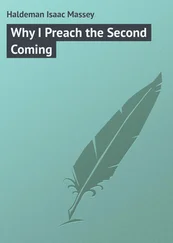“I know it but not the word.”
“You have some planks, but you’re going to need a creeper to get the stove down the hill.”
“Thanks for the word.”
He noticed that she treated the gift of the word exactly like the avocados. She’d have to think about it after he left.
As she listened she noticed he was white around the eyes. Did he usually wear sunglasses? His eyes, his face reminded her of something, what? yes, of the face and white eyes of combat soldiers she had seen a long time ago in Life magazine. The eyes of the soldiers could not or would not bring themselves to focus.
Why could she remember perfectly an old Life magazine but could not quite remember why she had decided to come here?
“Go to Washau Motors in town,” the man said. “They sell Fords. I own it. But you won’t have to mention my name. So I am not doing you a favor. Ask for Jerry, the parts man. Through an error, probably Jerry’s, we have on hand one hundred creepers. Jerry is why I’m not making money. He would be glad to lend or give you an old one.”
“What will I say?”
“Say ‘Jerry, I’d like to borrow one of your old creepers.’”
“The word is creeper.”
“Yes. And there are two other things you’re going to need.”
“What?”
“You are probably going to have to take the stove apart to move it and to get it through the door of the greenhouse. You’re going to need two ten-inch crescent wrenches and a can of WD-40 to loosen the rusty bolts.”
“Give me the words.” She took out pad and pencil. He wrote: Creeper. Ten-inch crescent wrench. WD-40.
“Good.”
“I found the word ‘block’ in the dictionary in the library under the word ‘pulley.’ So I knew what to ask for in the hardware store.”
“I see.”
“Thank you.”
“You’re welcome.”
“I’d be glad to lend you—”
“No thank you.”
After the man left, she sat in the sun under the poplar. Though the air was still, one gold leaf shook violently. The bark had a bitter smell.
4
In the dim light and damp bitter-bark smell of the pittosporum there was the sound just above her head of a bird on the feeding tray. It was scratching seed with its feet like a chicken. The only way she could get comfortable sitting on the not quite horizontal branch was to slump against the trunk.
Through the open casement of Dr. Duk’s office came her father’s voice, faint then louder, going away then coming back. He was pacing up and down, shirt-sleeved, hands on hips, getting the show on the road. Dr. Duk would be sitting four feet from her, safer now behind his desk and swiveled around in his chair, keeping one eye on the feeding station and one hand near the tripoded Nikon in case a painted bunting should show up. Did buntings kick seed around like chickens?
Her mother? She must be sitting in the patient’s chair across the desk, bolt upright, one little finger in her mouth, eyes lidded and ironic as she watched her husband.
— might disagree on the particulars, Doc, said her father, coming close now. But one thing we can sure as hell agree on and that’s Allison’s well-being. It’s her happiness and health which comes first, now and always, right?
Right on, said Dr. Duk.
(No, dumb Docky Duck. Not right on. Like Kelso says, when you try to sound like something, you don’t sound like nothing.)
Get to the point, Tiger, said her mother dryly. A muted clunk, heavy gold striking gold, and she knew without seeing that her mother pursed one corner of her mouth and stuck her fist into her waist, jangling her bracelets.
Not point, said her father. Points. Okay.
Point one: We have the obligation to act in Allison’s best interests, right? You, Dr. Duk, in her medical interests, we, Katherine and I, in all her other interests, home, family, finances, future, and so forth.
Yes? said Dr. Duk, perking up. He did after all have an ear for such things and knew when something was up. At this moment he was looking at her father and thinking, as Kelso would say: What’s this dude up to, dropping by on his way to a party with all these plans for Allison when he hasn’t showed up twice in the past year? And what are these two all steamed up about with their competing plans, and what’s coming up now, the real plan? What’s this about finances? Have they suddenly gotten rich?
Point number two: As Allison’s parents we are also her guardians, right? I mean especially since Allison is hardly competent to manage her own affairs.
Well—
Would you believe, Doc, that in this state under a new law there is a difference between a person being mentally incompetent and legally incompetent? That even a person committed to a mental institution can inherit property?
Would I believe, you ask. Yes, I think I—
Would you believe this, Doc? — and this is the bottom line, folks — that even in such a case the parents do not automatically qualify as guardians?
Well yes, as a matter of fact—
I mean, what the hell is happening to the American family? Her father’s voice swept around the room like a searchlight. You know what I would do with people like Earl Warren?
You don’t have to. Earl Warren’s dead, said her mother wearily. Why don’t you get to the point, Tiger?
Would you believe, Doc, that in order for us to be Allison’s legal guardians, we have to petition the court and that it is up to the judge, any damn local redneck judge, to decide?
Well—
(What’s up, Doc? Your ears are standing straight up, aren’t they?)
That’s where you come in, Alistair, said her mother crisply, clinking and gathering herself. I’m quite sure you know the new laws better than we do. Namely, that a legal procedure is involved and that your testimony as to Allison’s legal competence will be crucial. I mean, my stars (now her eyes would be going up to the ceiling), you could testify in good conscience to my legal competence.
Of course. Quite. Dr. Duk’s voice was going down. No doubt he was rolling his unlit Marlboro cigarette. The little Dead Sea scroll was still undecipherable, but there was something here!
The only thing I don’t quite see, can’t find the handle of, said Dr. Duk carefully, is why all of a sudden the issue becomes important at this point in time.
(This point in time. Oh, Docky, now we’re Nixon. The question is, who are you, Docky, and what are you doing here at this point in time?)
She stopped listening and let her weight slump her hard against the trunk. She closed her eyes and ears to the words. The voices rose and fell, mounted against each other, glanced off, went away, came back, joined. It was like being a child and listening from the top of the stairs. Voices can be understood without words. Her father’s voice now had the same ragging importunate tone she heard from the landing when he was winning at poker. Dr. Duk’s was tentative, premonitory — like a prospector whose Geiger counter begins to click: hold on, what’s this? what have we here? Her mother’s voice was foot-wagging, eyes going around, exclamatory, impatient: oh, for heaven’s sake, let’s get this over with!
She started listening again when after a silence her father’s voice changed, fell into a quiet storytelling cadence. Such-and-such happened. So-and-so did it. Everyone listens when someone tells the news of a happening. Something had happened, and he was telling it as much to himself as to them, as if only in the telling, the saying out loud, could he believe it.
She pricked up her ears. They were talking about her.
— and would you believe, Doc, that the old lady, Aunt Sally, was not even her aunt? She was her real aunt’s friend, Aunt Grace. The two of them had lived together for thirty years, fought like cats and dogs most of the time. They used to come over every Sunday for dinner, so Allie naturally called Miss Sally Aunt Sally. Sure, we knew Miss Sally was fond of Allie ever since Allie was a little girl — for one thing Allie was the only one who would listen to her because the old lady could talk the ears off a jackass and frankly I couldn’t stand it more than a few minutes—
Читать дальше












